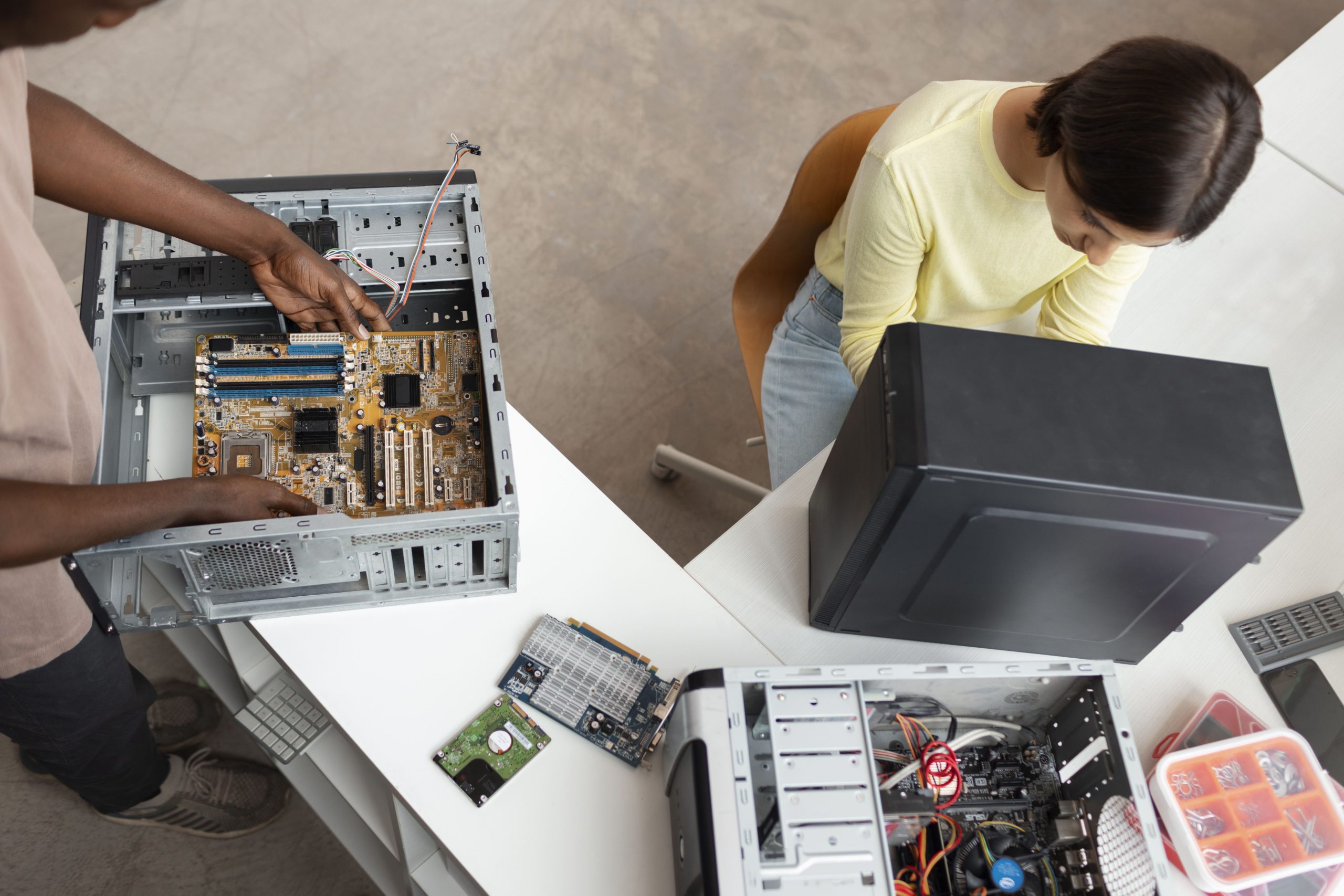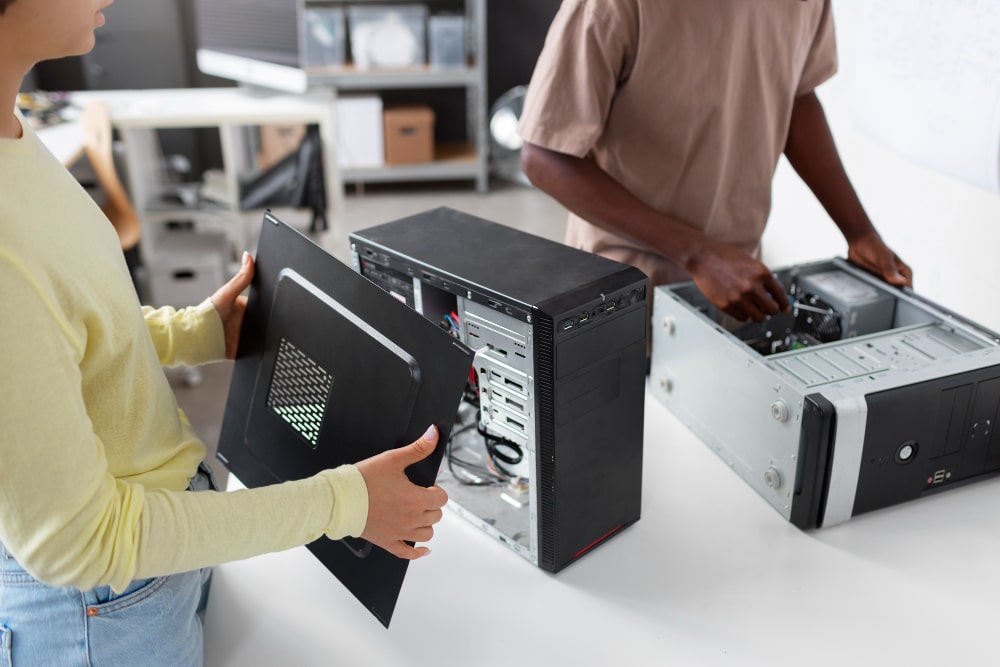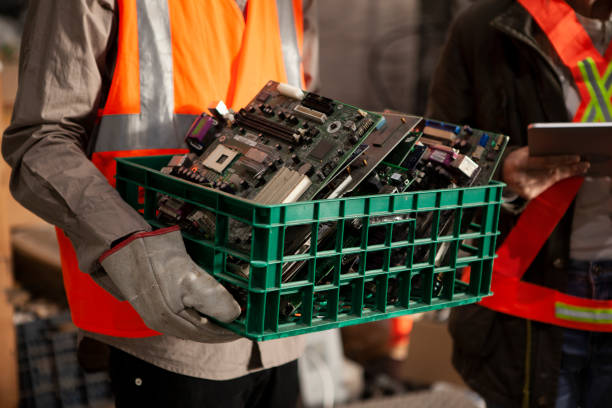Corporate responsibility is no longer optional; it’s essential. Businesses are leading the charge for sustainability, and one impactful way to contribute is through business e-waste recycling. This practice not only protects the environment but also enhances your organization’s reputation as a forward-thinking, socially responsible company.
The Growing Problem of e-Waste
Discarded electronic devices, or e-waste, have become one of the fastest-growing waste streams globally. The Global E-waste Monitor reports that over 53 million metric tons of e-waste were generated in 2020, with projections of a 40% increase by 2030. Alarmingly, only 17.4% of e-waste is formally recycled, while the rest ends up in landfills or is improperly disposed of, causing environmental harm and wasting valuable materials.
Businesses play a significant role in this challenge. Offices and data centers are filled with outdated devices that could contribute to this problem. However, by prioritizing business electronics recycling, companies can turn this challenge into an opportunity for positive change!
Why Business e-Waste Recycling Matters
- Protect the environment: Landfilled electronics release harmful chemicals like lead and mercury, which can leach into soil and water. Recycling ensures these materials are handled safely, reducing environmental impact.
- Conserve resources: Electronics contain valuable materials like gold, silver, and copper. Recycling helps recover these resources, reducing the need for mining and conserving natural resources. For example, recycling one million laptops saves enough energy to power over 3,500 U.S. homes for a year.
- Support circular economy goals: Recycling contributes to a circular economy, where materials are reused and repurposed rather than discarded, building a sustainable future.
- Enhance brand reputation: Stakeholders care deeply about sustainability. Committing to corporate IT recycling demonstrates environmental stewardship and enhances your company’s reputation.
How to Get Started with Corporate IT recycling?
To start your business electronics recycling doesn’t have to be complicated. Here’s how you begin:
- Conduct an e-waste audit: Identify outdated or unused electronics in your office. Knowing what you have is the first step in creating a recycling strategy.
- Partner with a certified IT recycling service: Work with a professional partner, like Remade, to ensure responsible handling of your e-waste.
- Set internal policies: Establish company-wide e-waste management policies, such as regular IT asset upgrades, a clear recycling process, and employee education on e-waste management.
- Track and share your impact: Many recycling services provide reports on your corporate e-waste recycling and its environmental benefits. Use this data to share your impact with stakeholders and celebrate your sustainability efforts.
A Corporate Environmental Responsibility
Prioritizing business electronics recycling is more than waste management—it’s a stand for a sustainable future. Every recycled device reduces pollution, conserves resources, and contributes to a cleaner planet. This tangible step toward corporate environmental responsibility not only aligns with global sustainability goals but also sets your business apart as a leader in environmental stewardship.
Build a Sustainable Future Together with Remade
At Remade, we help businesses take a smarter approach to their e-waste by prioritizing reuse. Recycling breaks materials down for raw components, while reuse keeps products in circulation for longer, saving resources and reducing environmental impact. If your old devices are too old or do not work, first then do we consider recycling.
At Remade, we specialize in helping companies embrace reuse strategies, extending the lifespan of your IT assets and supporting your corporate sustainability goals. Read about our method here. Let’s turn yesterday’s tech into tomorrow’s tools for positive change. Contact us today to learn how we can help with your corporate e-waste and reuse efforts.




